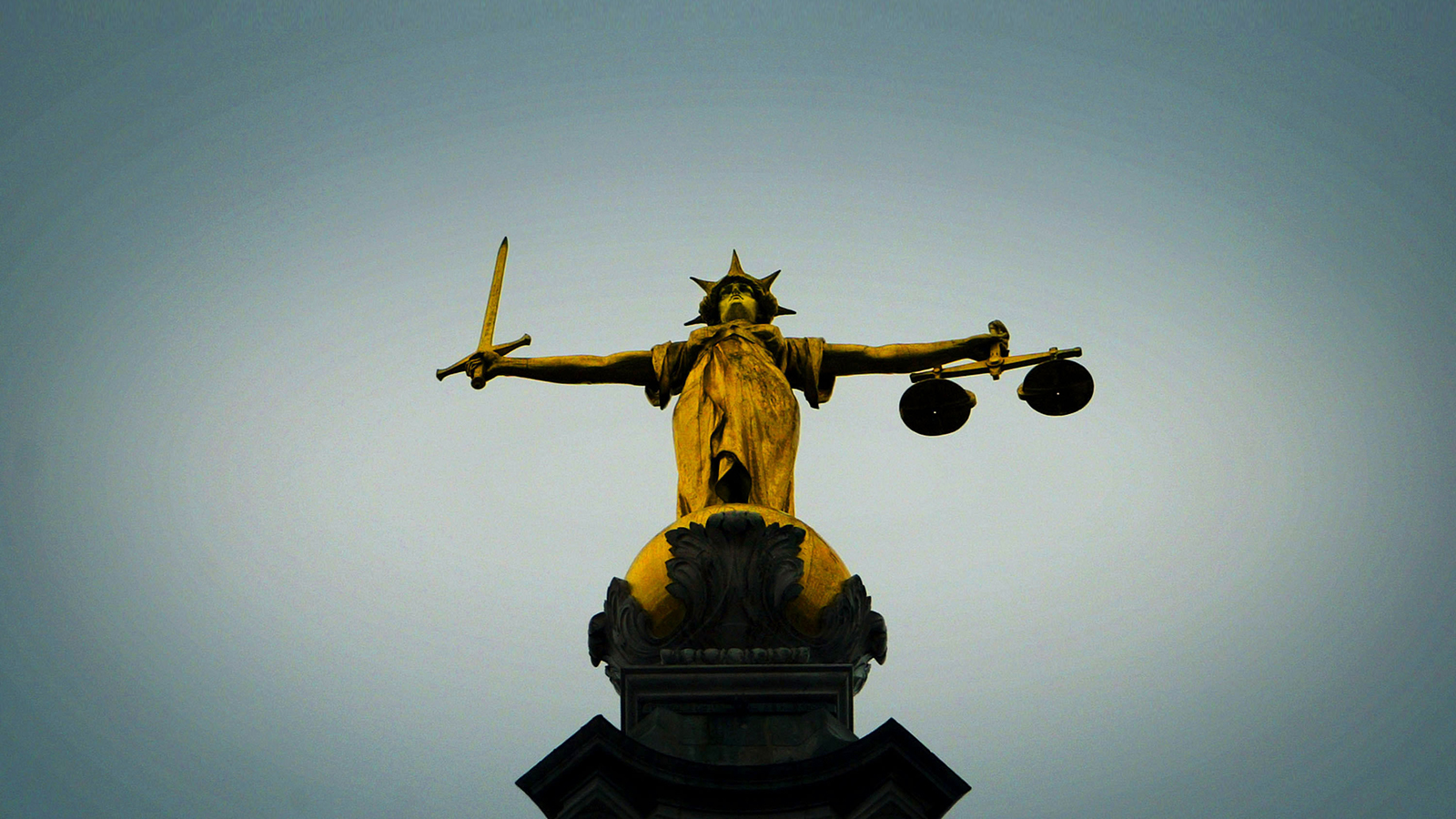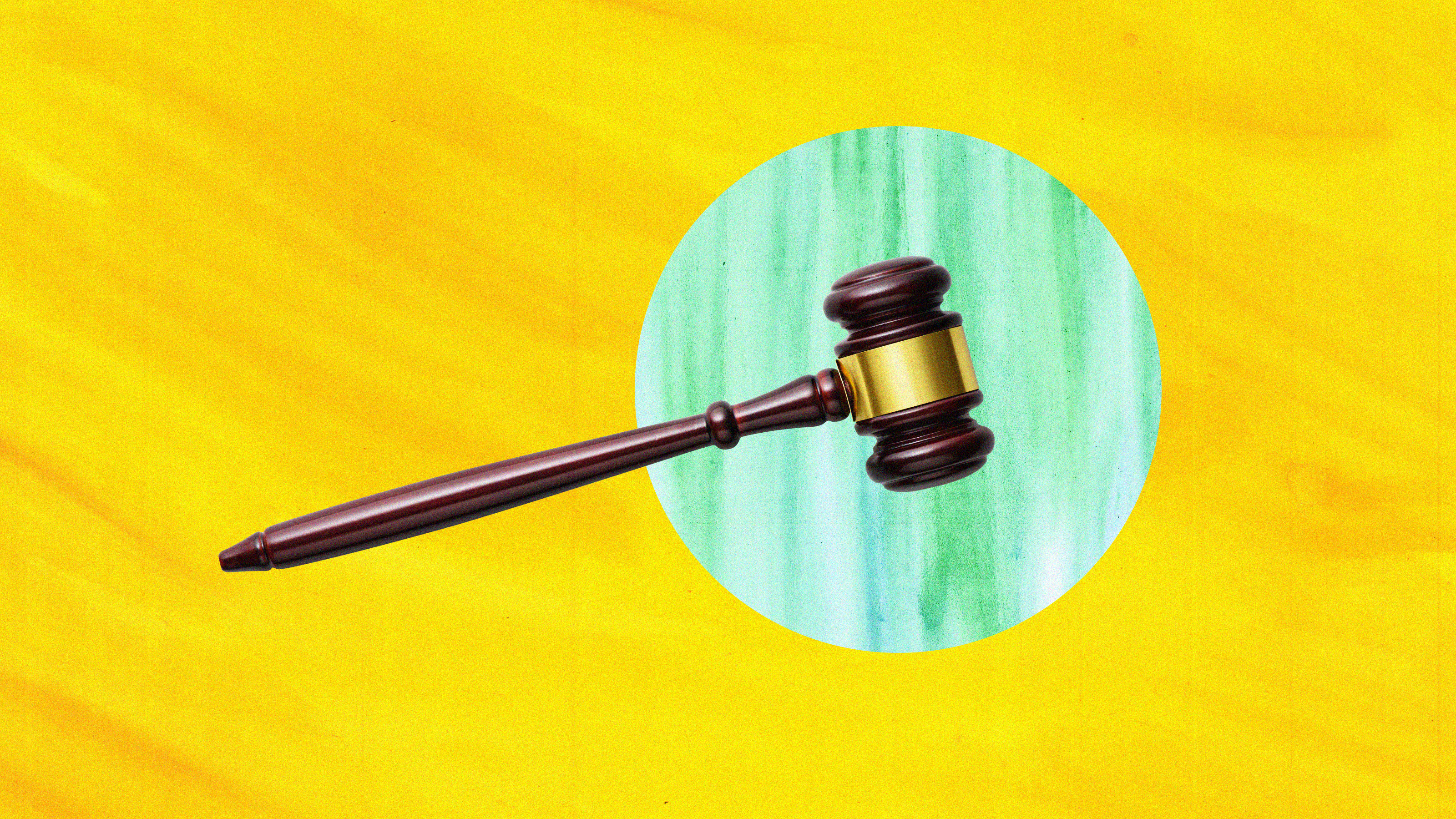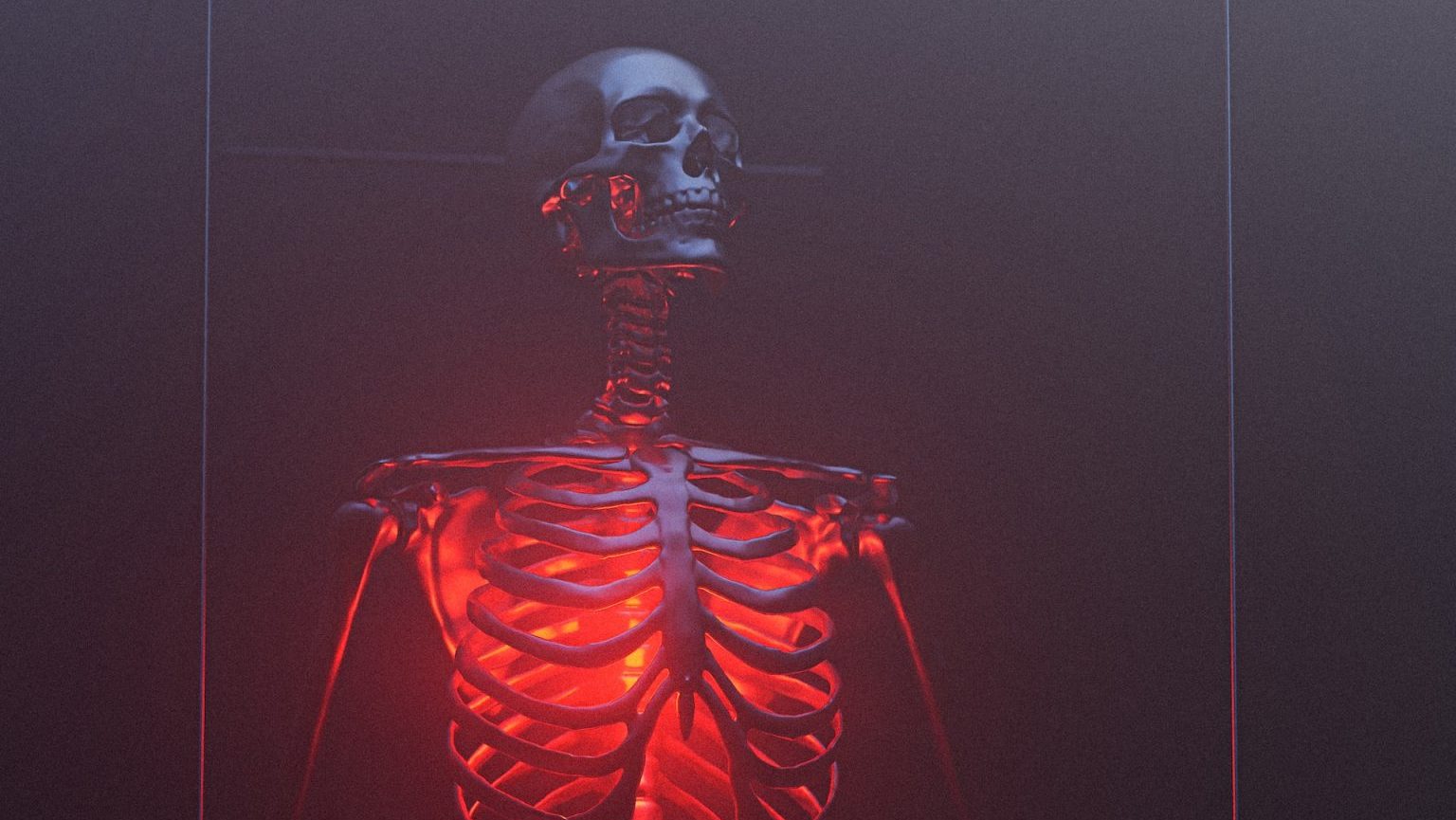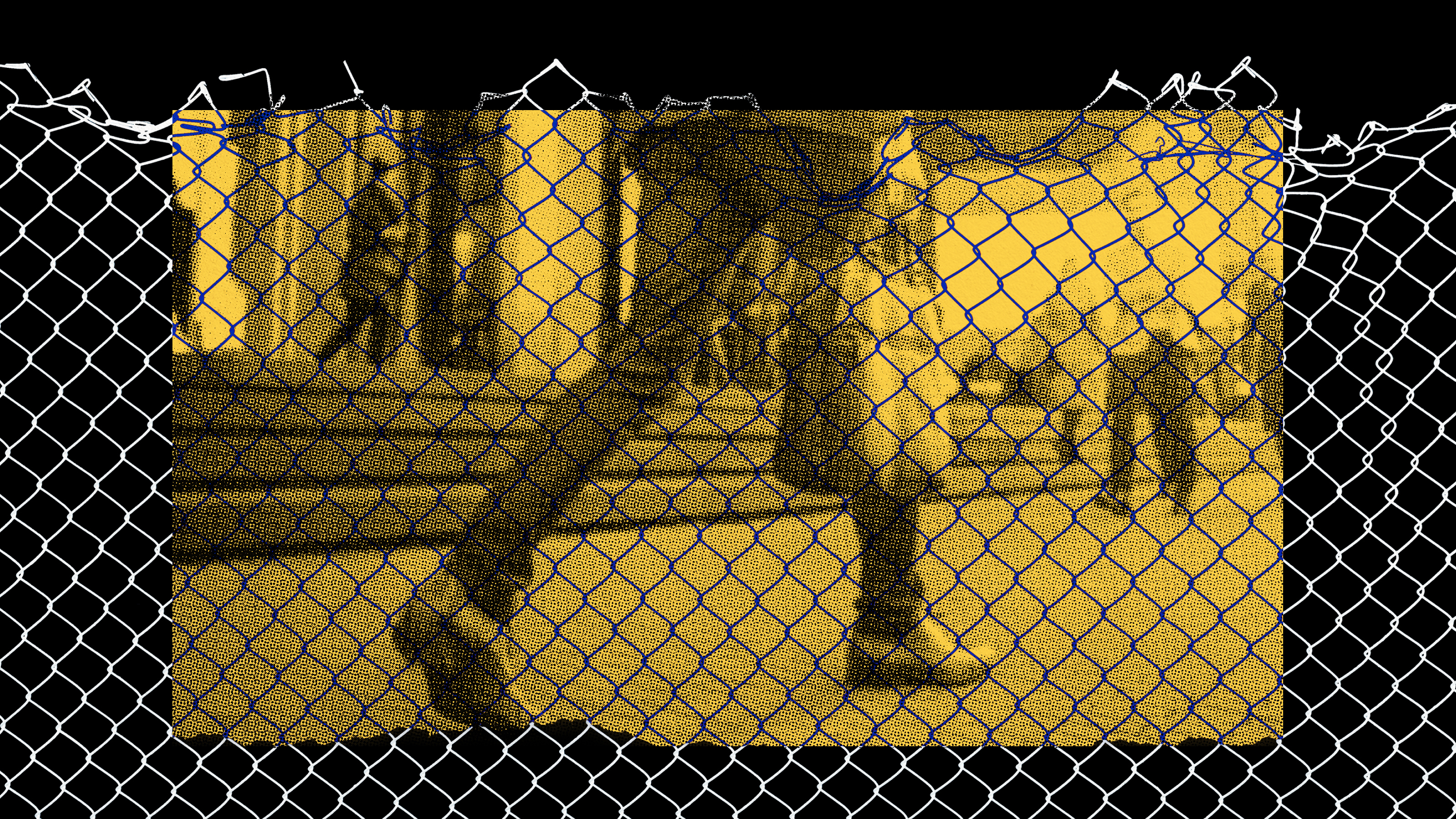Arrogant certainty is the reason for wrongful convictions. Here’s how to fix it
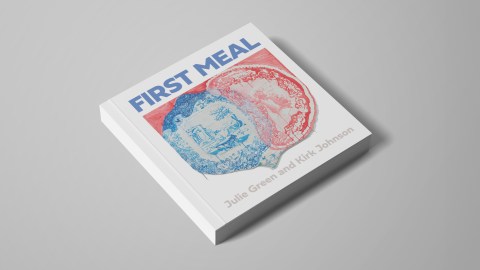
- An arrogant certainty of belief often lies at the heart of error in criminal justice.
- Memory can be a path to error — what we recall is an easily manipulated property of the human mind.
- Knowing how error can come about, and having tools with which to fight it, will help to reduce mistakes in the future.
The history of error in criminal justice often begins and ends with an arrogant certainty of belief: the Grand Inquisitor knowing heresy when he sees it, the detective who believes with bedrock confidence that he can spot a lie or a guilty perp, the prosecutor who knows the truth and is thereby justified in withholding evidence that could potentially exculpate a suspect.
That history, along with other threads of human fallibility — from an innocent failure of memory to an over-weaning belief in the power of the systems we build — are at the heart of our book of collaborative art and reporting, First Meal. Together we show and tell the stories of 25 wrongfully convicted people.
We’re not a society that readily acknowledges or rewards uncertainty in any field, from politics to commerce. In a courtroom especially, a prosecutor or expert witness who tentatively qualifies the evidence is probably doomed from the beginning. Jurors want certainty and definitive authority.
But consider the case of Kristine Bunch.
Bunch spent nearly 17 years in prison after jurors believed the state’s reconstruction of what happened on June 30, 1995, when a fire broke out in the trailer where she was living with her three-year-old son, Anthony, in Decatur County, Indiana. At the trial, a chemist and expert witness for the prosecution testified that he had found evidence of an accelerant in the boy’s bedroom. And that evidence, prosecutors said, showed Bunch to be a killer. The jury agreed and Bunch, then 22 years old and pregnant, was sentenced to 60 years in prison.
When the truth finally broke, it refuted everything the learned, credentialed scientific expert had said. “It was almost 12 years later when my attorneys got a subpoena for that file and discovered the original report said nothing had been found in my son’s bedroom,” Bunch said.
Why did the chemist say what he did? Why did he go beyond the evidence, to declare more than the facts could bear? Bunch will probably never know.
“He died a couple months before I got out,” she said. “So you wonder if it’s just, you know, he was in a job and felt like he was untouchable and he was doing the right thing for what he thought was right. I don’t know.”
Memory can also be a path to error. What we recall, or think we do, is a dangerous and easily manipulated property of the human mind, as fortune tellers, politicians, novelists and detectives have known for centuries. One exoneree in First Meal, who chose to remain anonymous, lived through that nightmare of error after being wrongfully identified by a rape victim.
Memory gets bolstered by emotion, and by the praise that can be heaped on a witness for standing up and doing the right thing. Feeling good makes us more confident of what we saw, however uncertain we might have initially felt. And the impact of a confident witness is overwhelming.
“When that person says, ‘that’s who did it, there’s no doubt in my mind,’ you know, with the trembling finger pointing at them, then a trial is usually over right there,” said Mike Ware, the executive director of the Texas Innocence Project. “I don’t care if they do have an ironclad alibi; the jury is not going to believe the ironclad alibi. They’re going to believe the eyewitness with the trembling hand.”
Our very faith in ourselves, and the integrity of the systems of justice we build, can lead us astray too. In the case against a man named Juan Rivera, prosecutors pushed the jury’s faith in the criminal justice system to the breaking point, and destroyed Rivera in the process. He was accused of raping and murdering an 11-year-old girl named Holly Staker.
“The jury is not going to believe the ironclad alibi. They’re going to believe the eyewitness with the trembling hand.”
Mike Ware, executive director, Texas Innocence Project
“Ladies and gentlemen of the jury,” said an assistant state’s prosecutor in the closing arguments to Rivera’s trial in 1998, “we’ve been together for over a half a month, and the evidence in this case shows not beyond just a reasonable doubt, not beyond a shadow of a doubt, beyond any doubt, beyond any question, that the defendant, Juan Antonio Rivera, brutally butchered, murdered, and raped Holly Staker. There is no question about it. There’s none.”
What proved that guilt even more, the prosecutor continued, was the suggestion by the defense, and by Rivera’s protests during his interrogation, that inappropriate pressure had been applied to extract a confession. Only guilty people would ever say such a thing, the prosecutor suggested.
“Why is he convinced at that time that the police are trying to pin this on him? It’s not because of anything that they’ve done. It’s because he knows he did it,” the prosecutor said.
And yet, to read the trial transcripts now, after the complete rebuke of the prosecution’s case by an appeals court in 2011, is to see nothing but doubt and uncertainty. An appellate court, ruling nearly 20 years after Holly’s murder, said the errors committed against Rivera were so grave that his conviction was “unjustified and cannot stand.”
Cynicism, faith’s opposite, can come easily in reading court transcripts and interviewing legal experts and exonerees in cases like these. But for all the darkness, there are also reasons for cautious optimism. Knowing how error can come about, and having tools by which to fight it — and, indeed, bear witness to it — is part of how we might reduce error in the future.
“We’re moving the ball, slowly but surely,” said Cynthia Garza, the conviction integrity unit director at the Dallas district attorney’s office. The Dallas unit, established in 2007, was one of the nation’s first departments set up specifically to second-guess and re-check — internally, with access to documents and evidence — whether past convictions were correct. Similar units have since spread across the nation.
Through humility, the old arrogance of infallibility crumbles. And in that there is genuine hope.
Some state legislatures, if only from the growing awareness that wrongful convictions can also be hugely expensive in civil damages, have also made important structural changes. Two laws in Texas make it harder for police and prosecutors to withhold information that could be of potential use to a defendant. The Illinois legislature passed a law in 2021 banning police from using deception when interrogating a person under age 18. Such techniques — suggesting, for example, that evidence had already been produced when investigators had almost none, or making false promises of leniency — have played a role in almost a third of wrongful convictions that were later cleared by DNA evidence, according to The Innocence Project.
Believing in systems of law doesn’t mean surrendering to blind faith that they always work, and trying to make those systems better and fairer doesn’t require a cynical dismissal that they are corrupt. Our law enforcement system, despite its flaws and errors, does by and large function; honest, good intent runs through it. All that, too, emerged clearly from our work on First Meal, along with the realization that the acceptance of human imperfection makes us stronger, not weaker. Through humility, the old arrogance of infallibility crumbles. And in that there is genuine hope.
